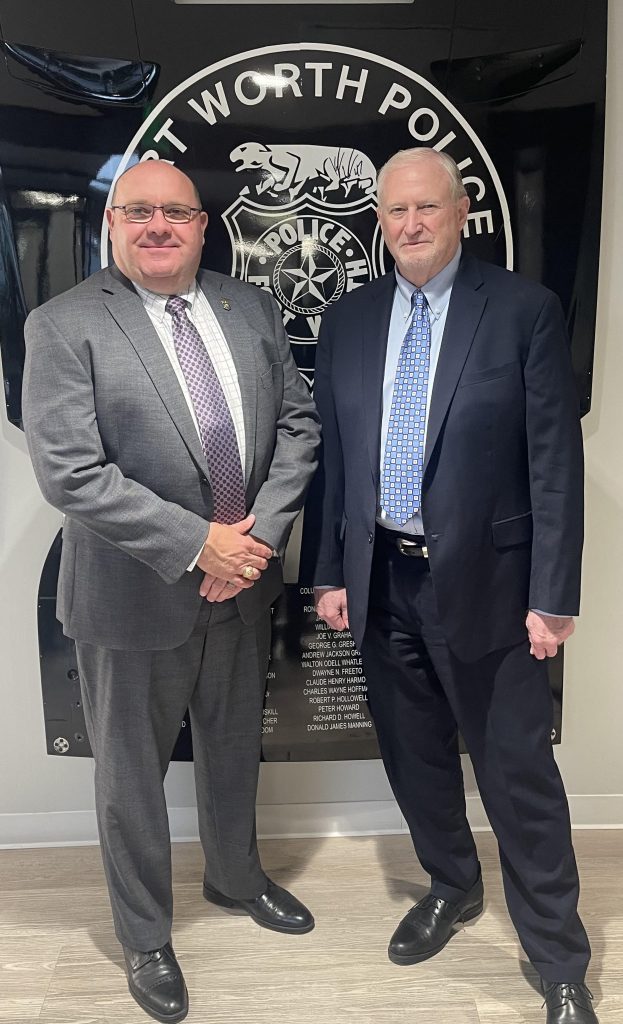In the News
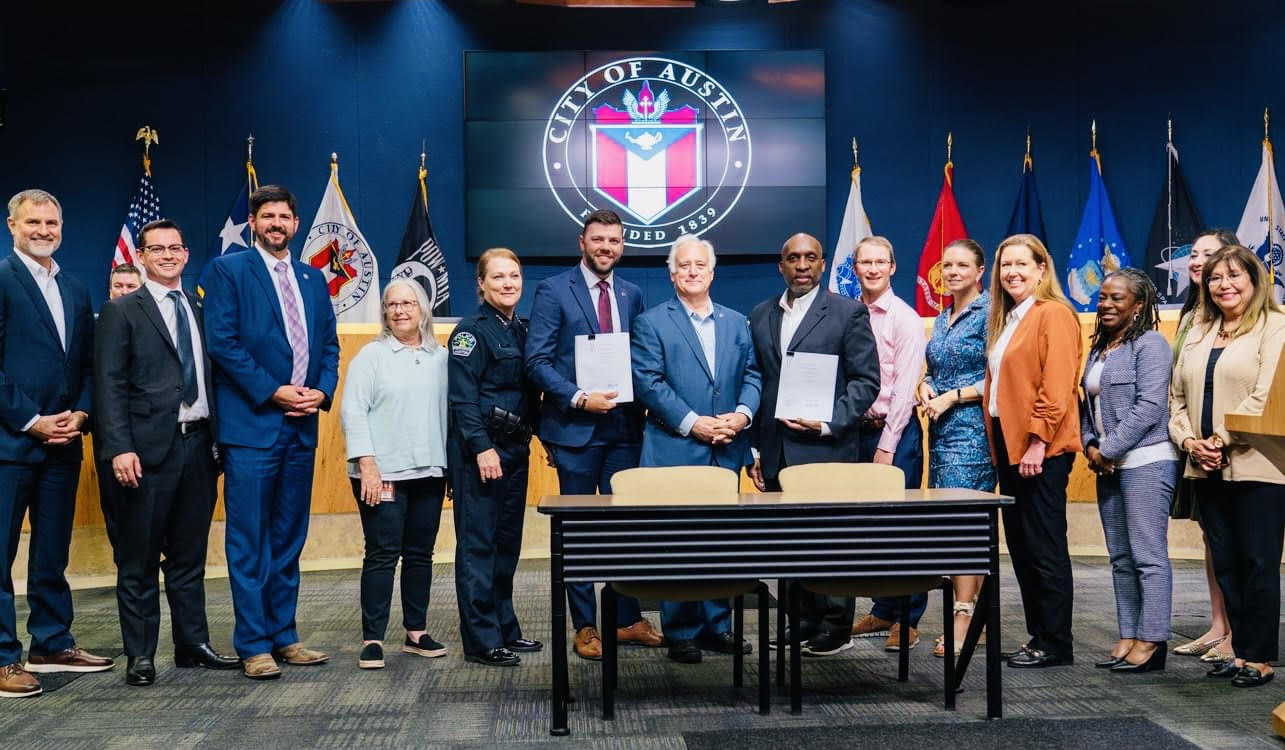
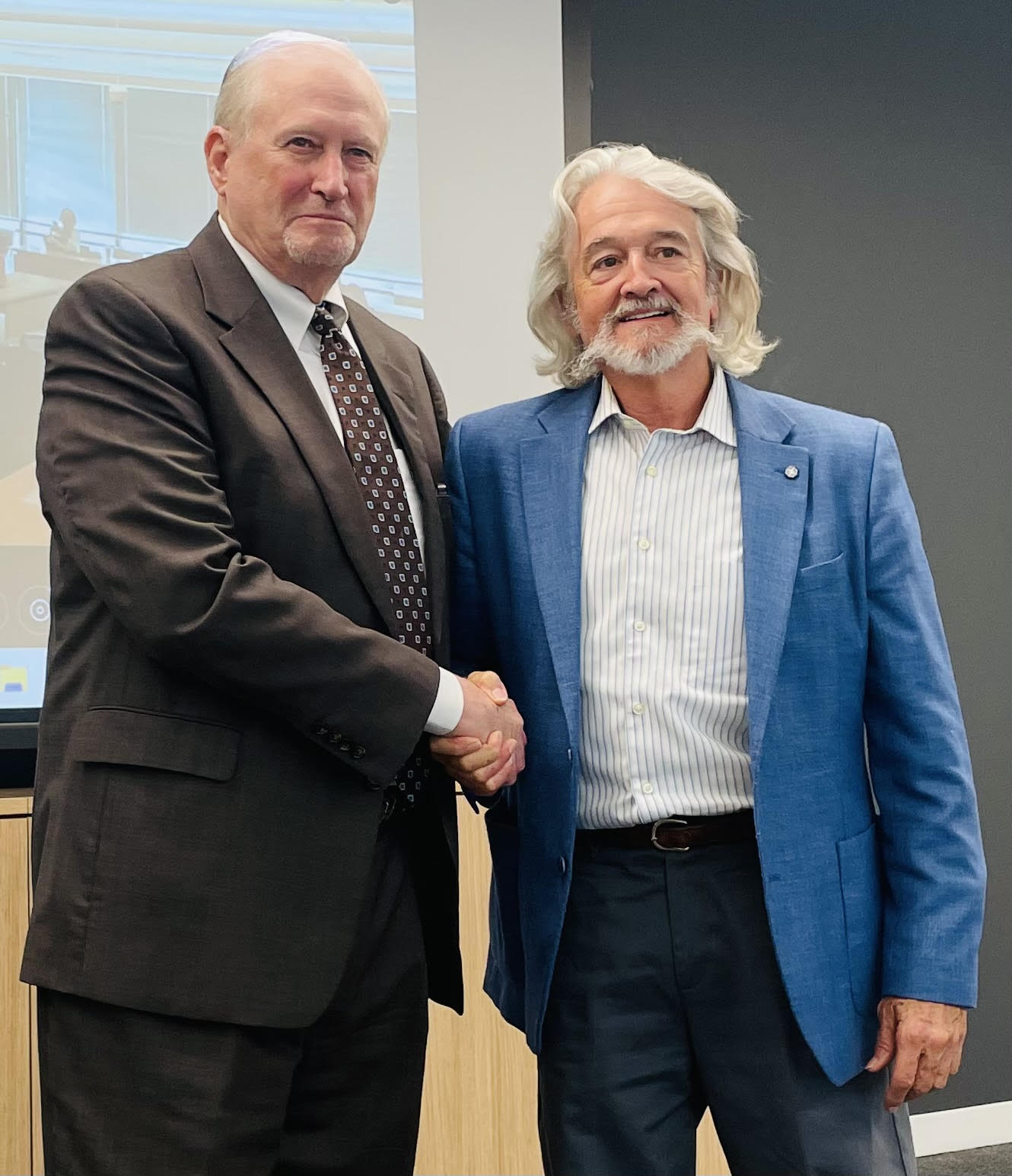
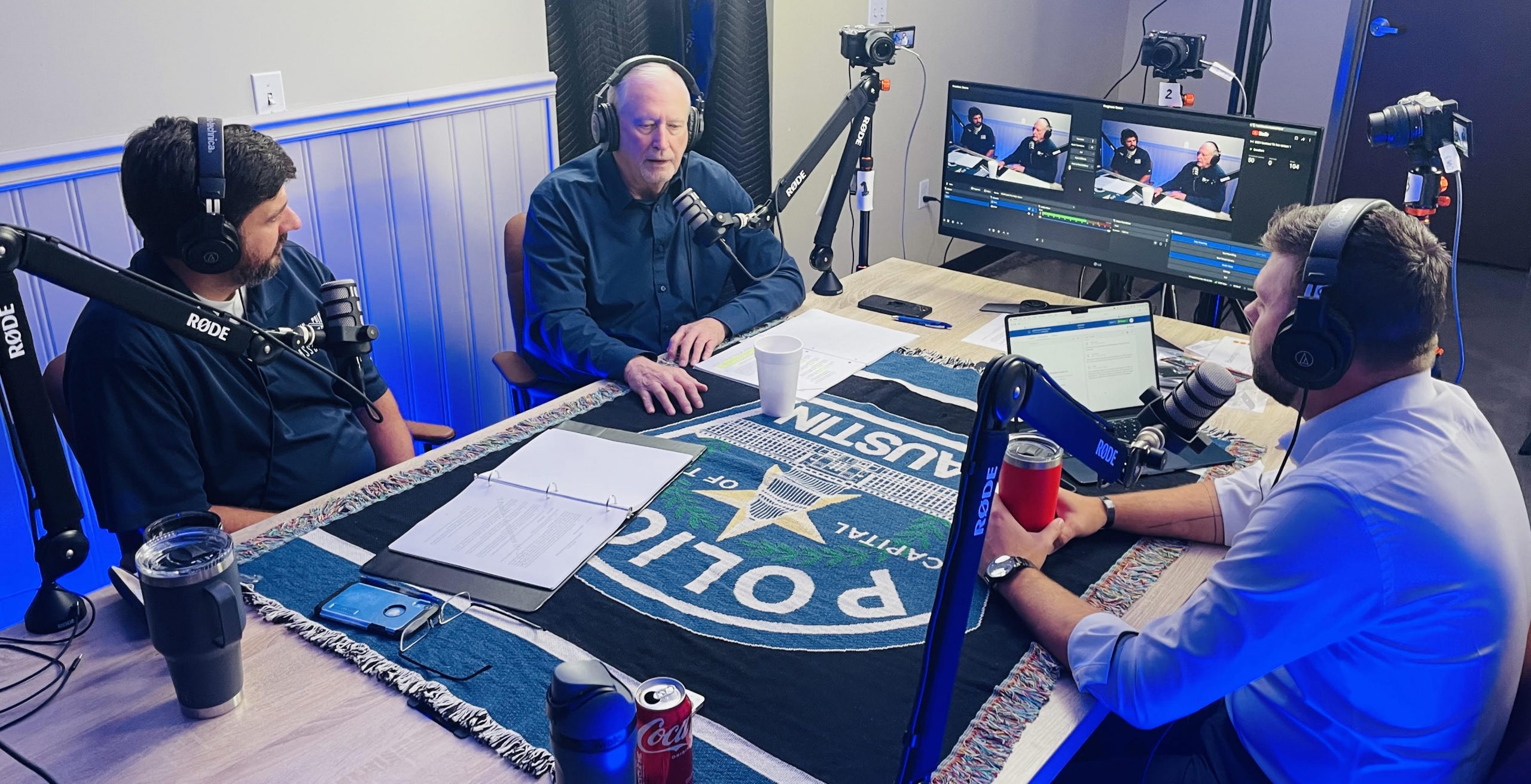
What an experience being chief negotiator for the Austin Police Association again. It was do or die this time after council rejected negotiated contracts in 2017, ratified new contract in 2018 and again rejected a new contract in February 2023. Activists passed an oversight ordinance in May 2023. Austin police have been out of contract twice and back into Chapter 143. APD is getting close to 500 vacancies and police operations are greatly impaired due to actions by the city council upon advice of certain activists..
I won’t elaborate here but activists overplayed their hand in trying to control the management of the police department and city council. It was never about oversight.APA had agreed to comprehensive oversight in all previous contracts and in the rejected 2023 contract.
Thanks to APA President Michael Bullock, Bargaining Chairman Tyler Latham, Christopher Irwin, Scott Askew, Maris Heyward & Lachelle Ratliff. Special thanks to Jessica Garner who got promoted during bargaining and had to return to real police work.
I would like to note that APA and the City’s negotiating team have mutually agreed to a new contract each time. The City’s outside management law firm is the most respected management side law firm advising cities and counties. They are professionals and seek to represent the best interests of the city every time we have sat across the table from them. The City’s Office of Labor Relations are trained professionals and well respected. That said it ain’t always easy to get to a deal on complicated subjects and it took almost a year and many verbals disagreements. In the end the process worked. Thanks to Lowell Denton, Rebecca Hayward, Sarah Griffin and Roxy Stevens.
I would also to thank City Manager T.C. Broadnax, Mayor Kirk Watson and the 9 council members who decided that it was time to stand up to the activists who cannot be satisfied until they destroy APD. Perhaps we have reached a new era of rebuilding APD. It was an experience for the record books and I appreciated the opportunity to have a front row seat.
The contract provides APD officers with a 28% raise and some new stipends.
The Fort Worth Police Officers Association has negotiated 5 contracts with the City. I have been privileged to have been the chief negotiator for all five. A special thanks to FWPOA President Lloyd Cook, attorney Terry Daffron and the union executive board. The City team was led by Assistant City Manager William Johnson, Senior Assistant City Attorney Christopher Troutt and Director of Human Resources Dianna Giordano. We appreciated their hard work and professionalism.
After 13 public bargaining sessions over 9 months the FWPOA and the City of Fort Worth reached a new agreement on a 4-year contract. Ninety-seven percent of the members ratified the agreement and the Mayor and city council voted 10-0 to ratify. Fort Worth is blessed to have a pro-police community and elected officials. With FWPD situated in the DFW metroplex and surrounded by some of the highest paid departments in the state, the City knew they had to raise salaries to remain competitive.
The highlights include:
Effective the first full pay period after October 1, 2024 all Officers shall receive the following raises for Fiscal Year 2025:
· For Officers in Steps 1-4, on October 1, 2024 – 12%
· For Officers in Steps 5-8 on October 1, 2024 – 10%
· For Officers in Steps 9-10 on October 1, 2024 – 5%
Effective the first full pay period after January 1, 2026 all Officers shall receive the following raises for Fiscal Year 2026:
· For Officers in Steps 1-8 on January 1, 2026 – 3%
· For Officers in Steps 9-10 on January 1, 2026 – 4%
Effective the first full pay period after January 1, 2027 all Officers shall receive the following raises for Fiscal Year 2027:
· For Officers in Steps 1-8 on January 1, 2027 – 3%
· For Officers in Steps 9-10 on January 1, 2027 – 5%
Effective the first full pay period after January 1, 2028 all Officers shall receive the following raises for Fiscal Year 2028:
· For Officers in Steps 1-8 on January 1, 2028 – 3%
· For Officers in Steps 9-10 on January 1, 2028 – 5%
The previous contract had steps until the 16th year. Under the new contract the top step is reduced to 14 years. After the pay increase on January 1, 2028 the top out pay will be:
Officer – $121,117
Corporal – $133,698
Sergeant – $147,322
Lieutenant- $162,433
Captain – $179,036
Additionally the FWPOA will gain a second full-time position under Association Business Leave. The disciplinary article was updated as was the hiring procedure.
Click the link to read the article
City, Austin Police Association restart contract talks by Ben Thompson, Community Impact
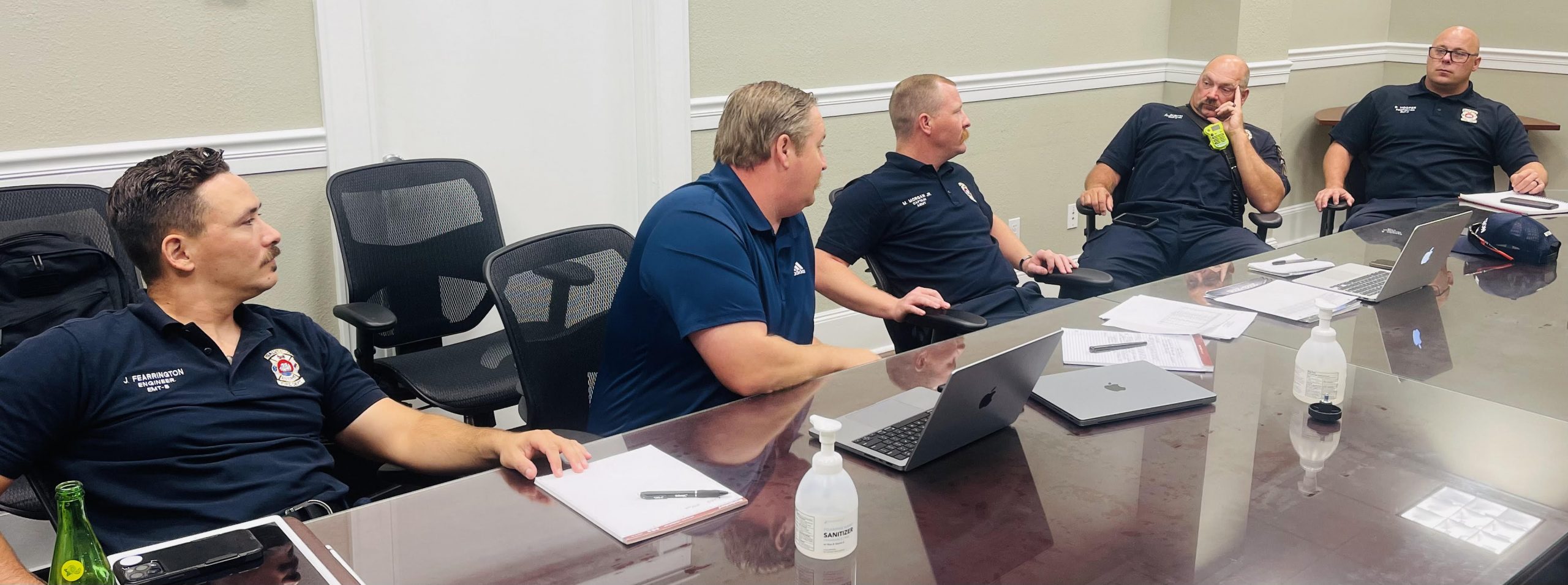
(L to R) John Fearrington; Martin Moses, Union President Mark Morgan Jr.; James Austin and Robert Hooper.
I appreciated the opportunity to be the chief negotiator for Galveston Firefighters Association, Local 571. In many ways it was a difficult negotiation that dragged on for over year.
First, the union wanted to change the negotiation dynamic from past years where the City wanted all negotiations completed in about a week. The union felt this was not feasible and did not allow for robust exchange of issues. While there were not a lot of face-to-face negotiations the union and the City were able to make significant improvements to Rule and Regulations, vacation leave, sick leave, overtime, 48/96 shift schedule, death in family leave and promotions.
Second, the union felt its wages had fallen in the market place. After some back-and-forth over comparable cities the parties agreed on a market place adjust for Fiscal Year 2023-2024 that averaged about 9% and for Fiscal Year 2024-2025 an across-the-board 3% raise. The City wanted to leave the third and fourth years to speculation and the union was opposed so the parties agreed to a 24-month contract that expires on September 30, 2025.
Third, the City wanted to lessen the voice of the union in representing its members for class action contract grievances; gain additional appointed positions; and make the Fire Marshals Office at -will. After months of off-and-on formal and informal negotiations a compromise was reached on the class action grievances and the parties left appointments and fire marshals to another contract.
I am very proud that the union members stood firmly behind the President and bargaining team. The City’s attempt to pressure the members by using the January 1, 2024 date for wages did not work. The union and city ratified a new agreement.
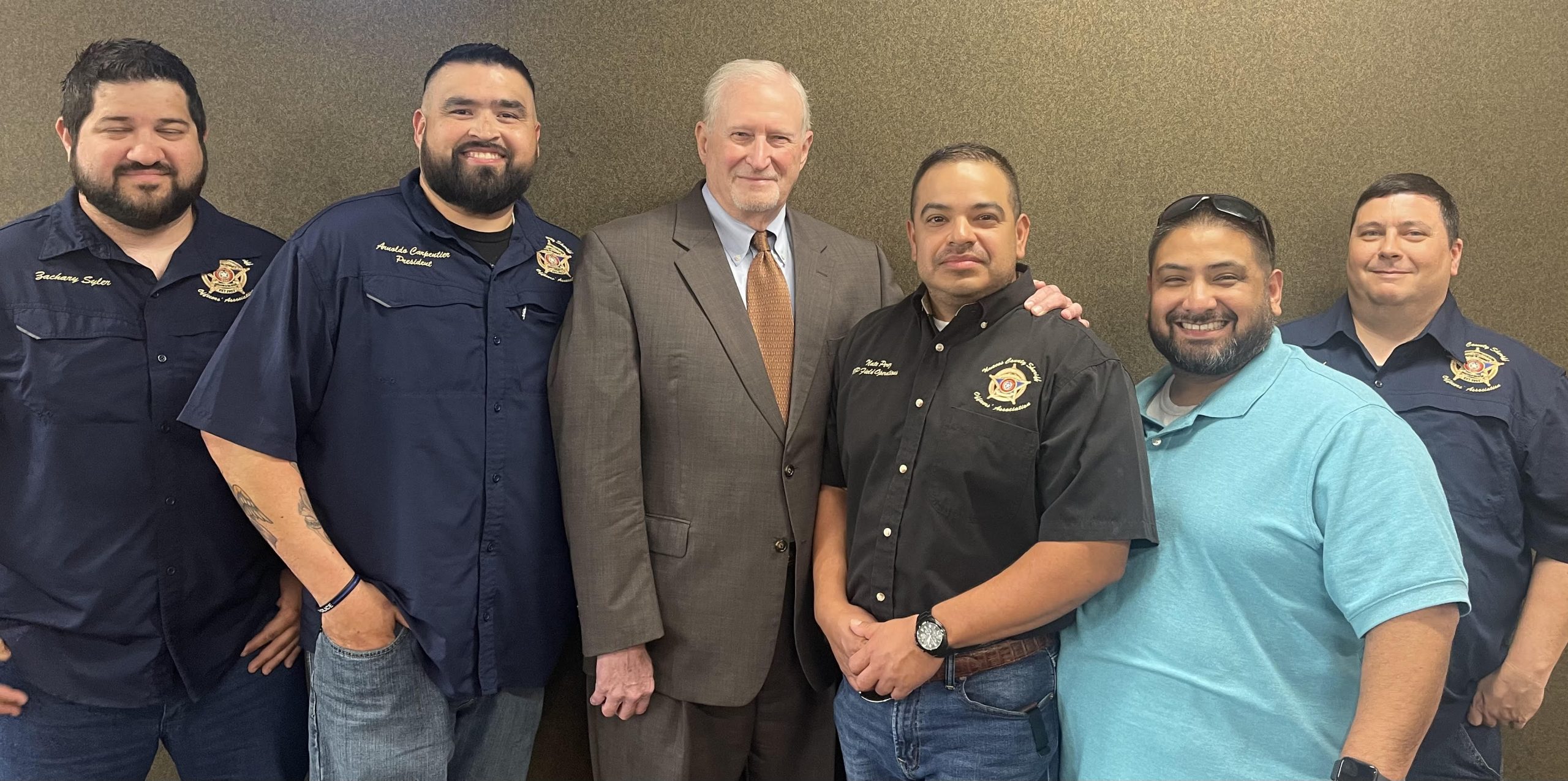
(L to R) Zachary Syler, A.C. Carpentier, Ron DeLord, Nate Perez, Mark Villarreal and Gary Thurmond
I was honored to be the Chief Negotiator for the 200-members of the Nueces County Sheriff’s Officers’ Association. NCOSA represents about 200 detention officers, deputy sheriffs and deputy constables. In light of the county’s $30-$50 million budget deficit and the end of grant money the deputies had been receiving for past two years, NCSOA was faced with serious obstacles in getting a new contract. The Association had to make several strategic decisions.
First, the Association decided to seek a two-year contract instead of a four-year as was usual because of the uncertainty of the county’s fiscal abilities in the long term. In light of its fiscal woes the County offered 3% for FY 24 and 3% for FY 25 for detention officers, deputies, sergeants and lieutenants, and 1.5% each year for Captains and above. Strangely the County has not done a market-based compensation study. The new contract requires the County to commission a market-based compensation study by June 1, 2024 and complete the study by December 31, 2024. The parties may meet and confer over the compensation study when it is complete.
Second, the next big obstacle was how to replace all or part of the ARPA grant funds being lost when the grant ended on September 30, 2023. The ARPA monies added about 20% to a deputies income. The County agreed to fund 10% of the grant monies for the next two years. Depending upon rank and step it amounts to $4,300 to $5,400 annually.
And finally the Association was able to settle with no concessions. NCSOA has the second longest evergreen clause at 5 years behind San Antonio POA at 10 years. The Association also gained new language that requires the County to pay members of the bargaining unit for working out of classification. In addition all members can now convert three sick days into personal days and use them without calling in sick.
Thanks to the County Judge, Commissioners, Sheriff and Constables for supporting the men and women of the Sheriff’s and Constable’s offices. NCSOA president A.C. Carpentier and team members Gary Thurmond, Nate Perez, Mark Villarreal and Zachary Syler did an amazing job during very stressful contract negotiations.

